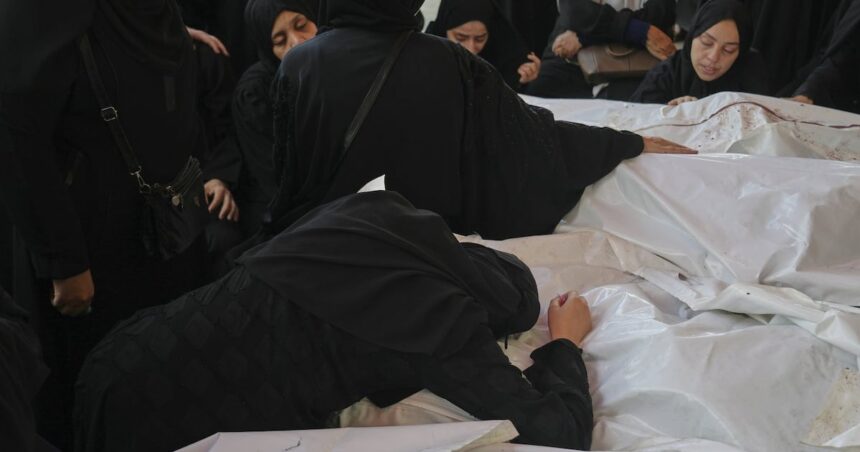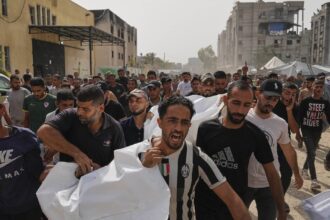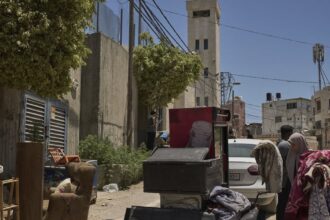In the early dawn hours Wednesday, multiple Israeli airstrikes thundered across Gaza’s central region, leaving behind scenes of devastating human loss. At least 28 Palestinians, including children and women, were killed as bombs struck residential buildings in Deir al-Balah and the nearby Nuseirat refugee camp, according to Palestinian medical officials.
The attack on Deir al-Balah collapsed a three-story residential building onto sleeping families, with rescue workers racing against time to pull victims from beneath concrete slabs and twisted metal. Witnesses described the terrifying moments when explosions shattered the pre-dawn quiet, offering residents no warning or chance to evacuate.
“The building simply vanished with everyone inside,” said Mohammed Khader, a neighbor who assisted in rescue efforts. “We pulled out children still in their pajamas, some still alive but critically injured.”
Gaza’s Health Ministry reported that among the dead were nine children and six women. Hospital officials at Al-Aqsa Martyrs Hospital struggled to manage the influx of wounded, with corridors transformed into makeshift treatment areas as medical supplies continue to dwindle across the territory.
The Israeli military stated the airstrikes targeted Hamas military infrastructure, claiming they had intelligence indicating militant activity in the area. “We take extensive measures to minimize civilian casualties,” an IDF spokesperson said in a statement, though they acknowledged they were “reviewing reports of civilian casualties.”
This latest wave of violence comes amid increasing international pressure for a ceasefire. The death toll in Gaza has now surpassed 35,000 since the conflict began in October, according to Gaza health authorities, with the United Nations reporting that over 70 percent of Gaza’s housing has been damaged or destroyed.
The strikes occurred as Egyptian and Qatari mediators continue attempts to broker a ceasefire agreement between Israel and Hamas. Progress remains elusive despite multiple rounds of negotiations, with key points of contention including the release of hostages and permanent security arrangements.
Humanitarian conditions in Gaza have reached catastrophic levels, according to World News reports. The UN World Food Programme warns that famine is imminent in northern Gaza, with severe food insecurity spreading throughout the territory. Clean water remains scarce, with most infrastructure severely damaged.
International humanitarian organizations, including Doctors Without Borders, have described the healthcare system as “completely collapsed,” with only 13 of Gaza’s 36 hospitals partially functioning. Medical teams report treating increasing numbers of malnourished children alongside war injuries.
As diplomatic efforts continue without tangible results, questions about accountability for civilian deaths have intensified. The International Criminal Court prosecutor recently announced he is seeking arrest warrants for Israeli and Hamas leaders, citing alleged war crimes committed during the conflict.
“Each day without a ceasefire means more civilian lives lost,” UN Secretary-General António Guterres said Tuesday, calling the situation “a stain on our collective humanity.”
In the wake of this latest tragedy, a pressing question emerges: When the international community’s calls for protecting civilian lives repeatedly go unheeded, what mechanisms truly exist to enforce the most fundamental principles of humanitarian law in conflict zones?










